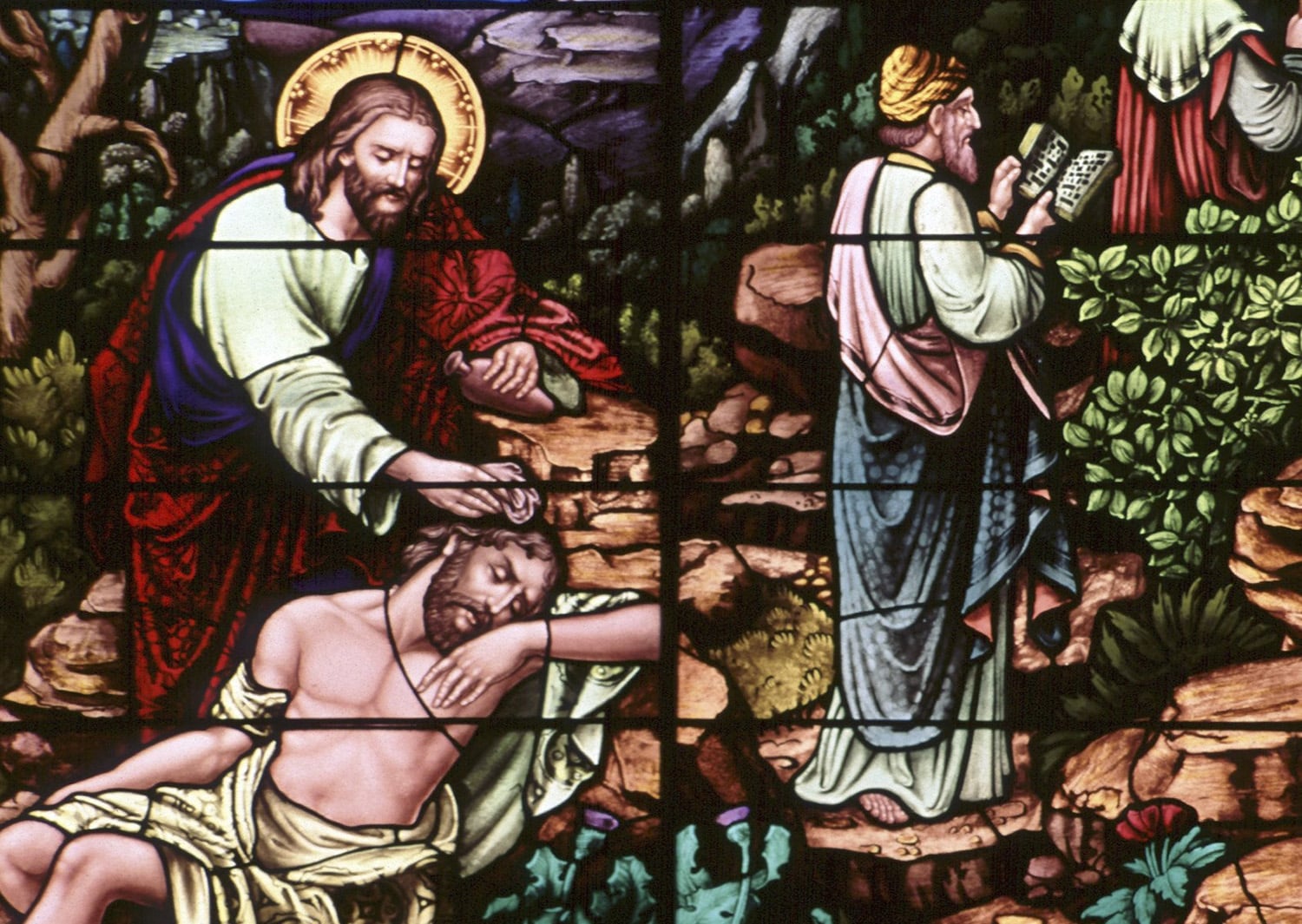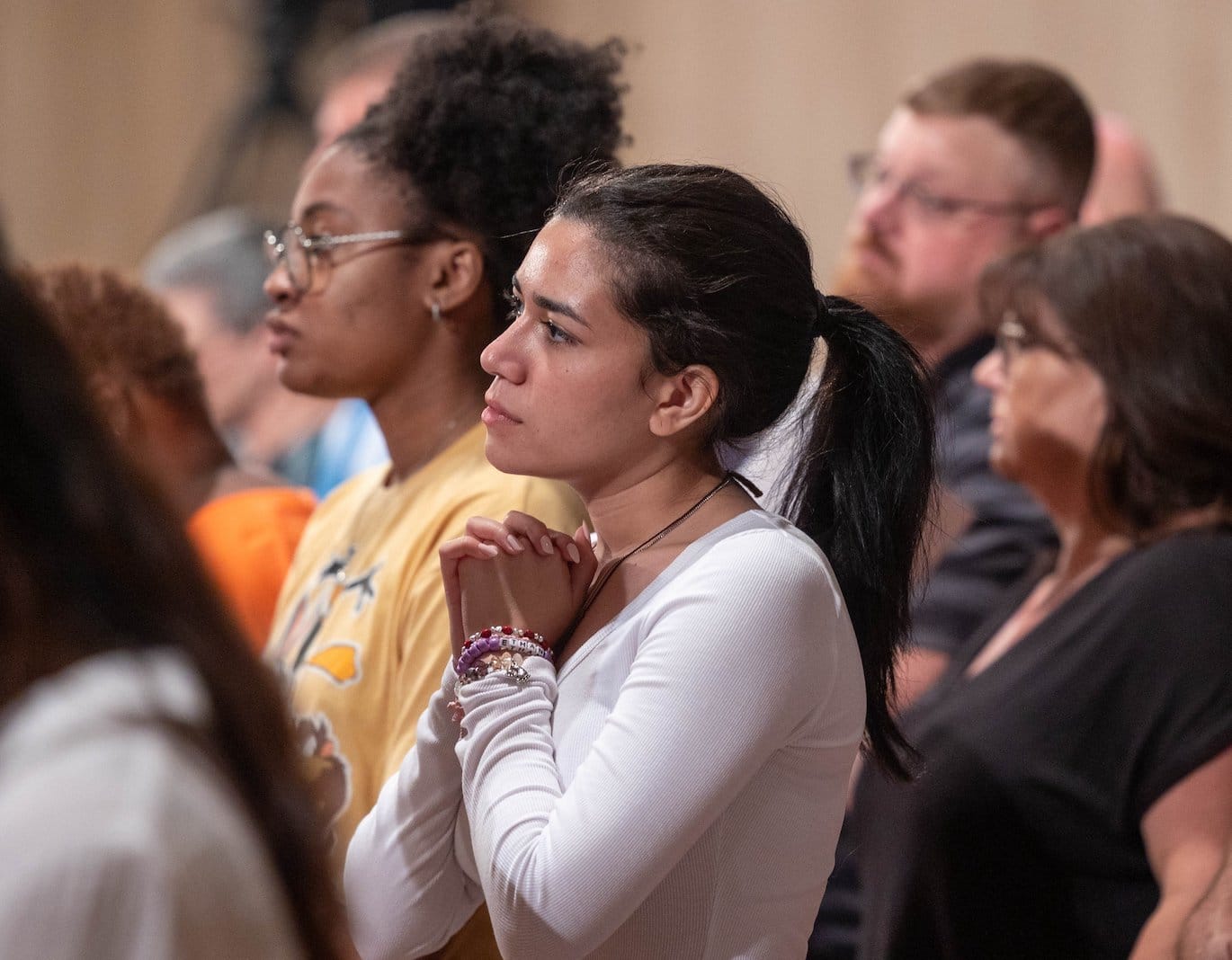Question: I have often seen people leave the church during the distribution of the holy Eucharist. I got up the nerve to ask a lady why she did this every Sunday. She said she was told by the priest that she was excommunicated. She had been married in the Church, and they had gotten divorced because of his infidelity and that he had gotten another woman pregnant. She had put up with his abuses and had forgiven him and his drinking, but he moved out, leaving her with the two small children. She later remarried, mainly, she admits, for health insurance, etc. This is now a 27-year history of a woman who attends church every Sunday and does many small favors for people in the community. Excommunicated? Is she today’s Mary Magdalene? Surely there’s a way for the Church to forgive her. I know Jesus would.
— H.Hubble, via email
Answer: The terminology in this situation is being misapplied. If, for some reason, a person cannot receive holy Communion, this does not mean they are excommunicated. Excommunication involves a formal recognition and declaration by the Church that an individual is no longer in communion with the Catholic Church since they have persisted in schismatic actions. This usually means that they persist in manifest rejection of certain Church teachings or by their actions formally reject what makes for union with the Church. For example, someone might deny that the current pontiff is in fact the true pope, or they may act blasphemously toward the Eucharist, etc. Excommunication must be formally declared by the Church and only after due process wherein the person is given opportunities to recant their publicly manifest actions or declarations. It is the most serious of penalties that the Church can issue, and it is rather rare. Further, a priest cannot declare someone is excommunicated. This is reserved to the Roman apostolic see. There are some excommunications that are automatically incurred, such as procuring abortion, profaning the Eucharist or violently attacking the pope. But even here, the formal declaration that one has incurred the penalty, or the removal of such penalty is generally reserved to the Holy See unless it is delegated to a bishop or priest.
Possibility of an annulment
The woman with whom you spoke is surely not excommunicated. She is still a member of the body of Christ, the Church. Her inability to receive absolution in confession and receive holy Communion seems based solely on the fact that she is in a second marriage, which Jesus forbids (cf. Mt 19:6-8).
In terms of the scenario, as you paint it, it is understandable that you are aghast at the perceived injustice. However, it is not true that the Church can do nothing to help her. She clearly has the right to petition the Church to examine her first marriage and see if there are grounds for annulment. It may also be that her current husband had a prior marriage and, if so, he too would have the right to ask the Church to consider if it can be declared null. If these processes yield the necessary declaration(s) of nullity, their current marriage can be recognized by the Church, blessed, and she can return to confession and holy Communion.
An annulment is not a Catholic divorce. Rather it is a recognition by the Church that something necessary for a valid marriage (e.g. sufficient freedom and maturity, proper disclosure of serious matters such as addiction, mental health issues or debt, etc.) was lacking at the time of the vow. If there is evidence of such things, the Church recognizes the marriage was null from the beginning, i.e. it never existed in the full ecclesial understanding of a valid marriage. As such, the person is free to marry and would not be in a state of ongoing adultery forbidden by Jesus since it would not be “what God has joined together.”
Why, in 27 years, the woman you describe has not obtained an annulment is not clear based on what you have written. But it is not fair to say the Church does not offer her a potential remedy. Whatever one thinks of annulments, most people who apply for them have them granted.
As for leaving Mass early, this is not a good idea since the priest offers a blessing to all at the end of Mass. She is leaving just prior to one blessing she certainly can receive. Advice to one and all: Don’t block your blessings.







